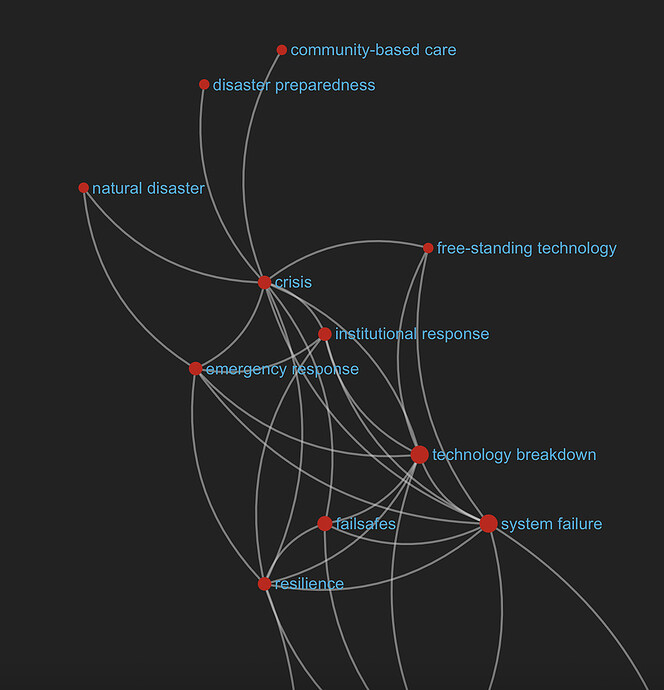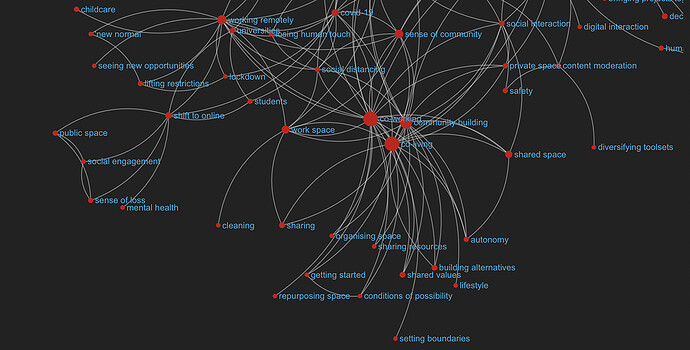These draw input from Leonie’s Ethno report #1
The Future of Work
Defining forms of labour, work as space, work as time, work as movement, work as process, work as relationships
When we talk about the impact of technologies on the future of work, we must consider the complex ways in which they interact with and impact our health, welfare and wellbeing.
- how current decisions and models around work affect the lived experiences of day-to-day work
- how business models and regulatory principles shape the conditions of everyday labour.
- how technologies and business models interact with and impact our environöentm health, welfare and wellbeing.
- what alternatives are or could be improving conditions
The SSNA offers a visual map of the ways in which work is understood, and which Leonie defines across four categories - the fifth is :
- work as space (physical and social)
- work as movement (including access and agency)
- work as time (including notions of acceleration, slowness and constraint)
- work as process (legal, political, economic)
Addition from event curator: - work as activity (what is and what is not considered “work”)
Within the discussions about labour, a distinction is made between
- everyday labour: the practicalities and lived experiences of day-to-day work and
- top-level business models, policies and forms of regulation
Focus questions
-
What role will technology play in our ability not only to survive (to attain livelihoods, to establish systems of support, and to access to necessities), but to build abundant and sustainable ways of living?
-
What do we need digital technologies to allow us to do in order for us to work during crisis?
-
Role of exposure to digital technologies in community/collective mental health?
-
What are the challenges and responsibilities of institutions, companies and organisations to facilitate new forms of co-working and and co-living?
-
Now that many forms of labour have moved to online spaces, how do we ensure socioeconomic mobility?
-
as we look toward the future of work, what are our values? How do we ensure that our values are represented going forward? How can tech intervene to shape the future of work?
-
how is work currently regulated and how should these models change in the future?
Resilience, Welfare & Sustainability
We can’t talk about technologies without considering the complex ways in which they interact with and impact our health, welfare and wellbeing.
- health,
- environment,
- infrastructure,
- community-building (building collectivity)
Focus questions
- What role will technology play in our ability not only to survive (to attain livelihoods, to establish systems of support, and to access to necessities), but to build abundant and sustainable ways of living?
- how can we harness the potential of digital tools to improve our existing systems and pave the way towards a resilient and sustainable future?
- role of exposure to digital technologies in community mental health. maintain social contact, to establish networks of support and build online communities. can also heighten anxiety, our sense of isolation and desires for human contact.
- what perspectives are there on shared responsibility?
- understanding the relationship between digital technology and public health
- Access to healthcare: digital technologies can make access to crucial healthcare information more widely accessible. technologies allow us to track the spread of the virus and locate vaccination and testing sites. can offer quite a lot of agency to individuals and communities. technology may further exacerbate disparities in healthcare access. may also contribute to exploitative business practices

